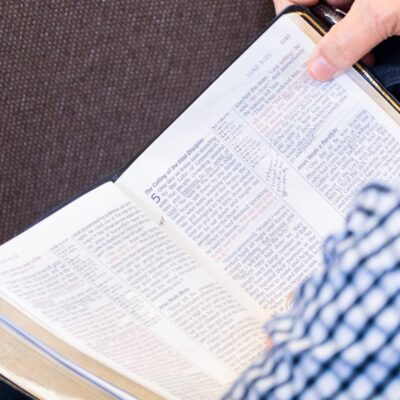A favorite author of mine says “Monotheism is a terrible idea but a wonderful discovery.” He explains that it took the exile for Israel to discover monotheism. It was only an idea before they went through the exile and subsequent theological reflection.
It was critical that monotheism be in place before Jesus arrived. If not, there would have been no foundation for the Christian claim that Jesus is indeed God in the flesh.
My blog title came from reading Isaiah 2 recently.
Isaiah prophesied during the historical time of Uzziah, Jotham, Ahaz and Hezekiah – times of national wealth. Uzziah was a righteous king for 50 years, but then wanted to take over the priesthood. 80 brave priests assembled to call him on it. He was struck with leprosy and served as a lame duck (2 Chron. 26). Isaiah began at the end of Uzziah’s reign (Isa. 6).
Jotham did well “but the people still followed corrupt practices.” (2 Chron. 27)
Ahaz didn’t get God at all. He shut the temple, made Baals, sacrificed his children and opened up major altars to the various gods of surrounding nations (a political-religious move). (2 Chron. 28)
Hezekiah served God, recovering lost spiritual ground (2 Chron. 29-31). But he confused his legacy by refusing to put his house in order when God said he was about to die. He won 15 more years of life, but sold out the nation when he bragged to Babylonian emissaries. (2 Chron. 32).
Isaiah saw a vision for monotheism, clearly stated in Isaiah 2 but also throughout his book.
Judah is judged (2:6-11) because they seek religious wisdom from “the east” and “fortune tellers” and because of the abundance of wealth. “Their land is filled with silver and gold… horses… chariots… [and] idols. They bow down to the work of their hands, to what their own fingers have made.”
But God alone rules and ought to receive sole acknowledgement. So there will come a day when “the Lord alone will be exalted” (2:11 and 17). Judah always tried to serve God even if some kings failed. But Judah always struggled with the “God plus ….” problem. God plus political alliances – which always meant God plus idols. God plus wealth. God plus…anything.
They were henotheists: They could say “God is great.” On good days they could say “God is greater than…” But they could not say “God is only” because they were resource-rich. This is the message of Isaiah 2:6-22.
So why do I say henotheists make reluctant pacifists? Because 2:1-5 casts the monotheistic vision which includes elimination of war-weapons. In the latter days the “mountain of the house of the Lord shall be established as the highest”. All nations will say, ‘come let us go up to the mountain of the Lord…that we may walk in his paths.” And (God) will judge between the nations and shall decide disputes…and (as a result) they will beat their swords into plowshares and their spears into pruning hooks…neither shall they learn war anymore.”
Isaiah juxtaposes the vision of peace and the judgment of Judah’s mixed worship of henotheism.
God took Israel to monotheism. Jesus (who is God!) pointed his Church there too. Whether OT or NT, one goal of the gospel is “swords into plows.” So shouldn’t the church move into that direction as clearly as possible, pointing the way for others (the nations of Is. 2)? But as long as we struggle with full reliance on God, we’ll struggle with the message of peace.
In resource-rich contexts, access to resources and solutions (medical, financial, government, etc) causes us to depend on those, even while we express allegiance to God. We are much like Judah.
Lack of access tends to push us to rely on God more fully. As I observe our global faith family, I don’t think it’s a coincidence that the less-resourced, suffering church understands our peace conviction, our cautious patriotism, and our reluctance or refusal to take up arms. All three of these subjects came up in our recent ICOMB summit. It’s the more-resourced church that struggles with the relevance and “practicality” of our peace conviction.
I applaud the US MB Conference in its work to make relevant our peace confession. Keep up the good work! But I do believe the North American struggle comes out of its so-called advantages of freedom and wealth, and its absence of historical suffering.
To some degree Christians will be henotheists, not true monotheists. God is always working on us to make him “the one and only.” Until then, we’ll be reluctant to beat our swords into plows.




